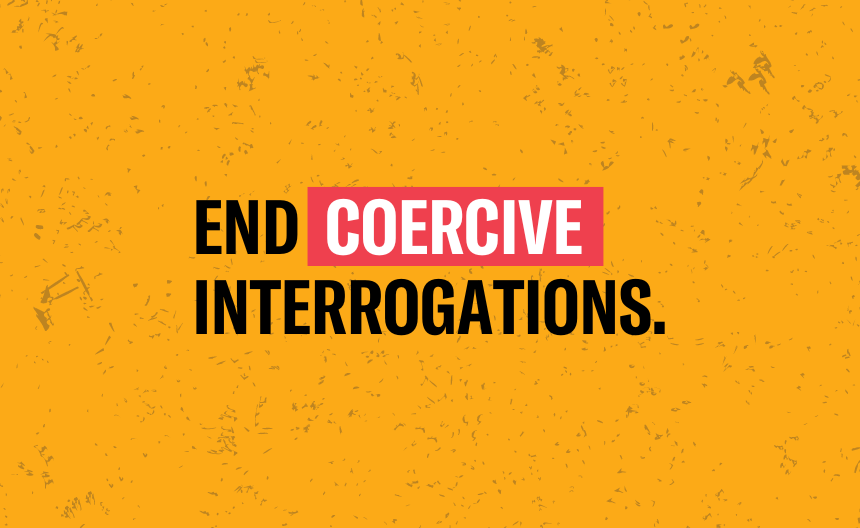Vermonters deserve to live secure and equitable lives, which requires implementing police reforms that advance transparency, accountability, and racial justice.
Under current Vermont law, officers can lie to suspects and witnesses during questioning. This tactic can—and does—elicit false confessions. These practices hurt not only the person who falsely confesses. They can also derail investigations and deny communities access to truthful and just resolutions.
It’s time to end coercive interrogations in Vermont
We are supporting S.6, a bill that would prevent police from using deceptive and coercive interrogation methods on young people in Vermont. We are advocating for the expansion of this bill to prohibit the use of these unjust tactics in all interrogations—regardless of a person’s age—though we also recognize that youth are especially susceptible to coercion. In fact, young people are three times more likely than adults to make a false confession.
Deceptive interrogations disproportionately harm marginalized people
Dishonesty and manipulation have no place in Vermont’s criminal legal system. Coercive interrogation tactics ultimately harm the people our state has made the most vulnerable: people of color, youth, and people with mental or physical disabilities.
- Data consistently shows that BIPOC are overrepresented in the criminal legal system, including in exoneration databases and in instances of false confessions.
- Experts have found that people living with mental and physical disabilities are also at particular risk for exploitation and manipulation during interrogation.
- Youth are particularly susceptible to deceptive tactics because the part of the brain that controls future planning, judgment, and decision-making is not fully formed until their mid-twenties.
Coerced confessions harm our communities and bypass justice
When cops attempt to manipulate suspects into confessing to a crime by introducing false information in an interrogation, they rob communities of their right to access true justice. False confessions often result in innocent people being convicted while actual perpetrators face no accountabilityVermont should strive to ensure that any confession is accurate, freely given, and obtained through ethical interrogation methods that are rooted in modern science.
Enabling officers to lie to adults is a missed opportunity to advance justice
We urge the legislature to broaden the scope of S.6 to prohibit deceptive and coercive tactics in all interrogations, not only with youth. In January, we filed a lawsuit on behalf of John Chinnici, a Bennington resident who was unlawfully arrested, interrogated, and searched by police after the repeatedly pressured multiple witnesses and suspects— in some instances, using the very same tactics this bill addresses—to name Mr. Chinnici as an accomplice in a January 2016 armed robbery.
While still trying to have Mr. Chinnici named as an accomplice, Bennington police arrested Mr. Chinnici without probable cause, and went on to make multiple misrepresentations in their interviews with Mr. Chinnici and in their application for a warrant to search his phone. Mr. Chinnici was prosecuted based on evidence arising from these unlawful actions. His resulting conviction was eventually thrown out. Mr. Chinnici now asserts that BPD officials and the Town of Bennington violated his federal and state constitutional rights.
Last session, we supported legislation that prohibited the use of deceptive and coercive methods towards all people, and we continue to urge the legislature to adopt that approach. Permitting deception or coercive techniques for any person is not aligned with the values of our legal system or our state.
Take action
Cops should not lie to the people who are in their custody, and they should not rely on dishonesty and manipulation in interrogations. We hope that Vermont will end the use of deceptive and coercive tactics in policing—regardless of a person’s age—and we see S.6 as an important step towards this goal. Contact your legislator today and urge them to vote yes on S.6.

